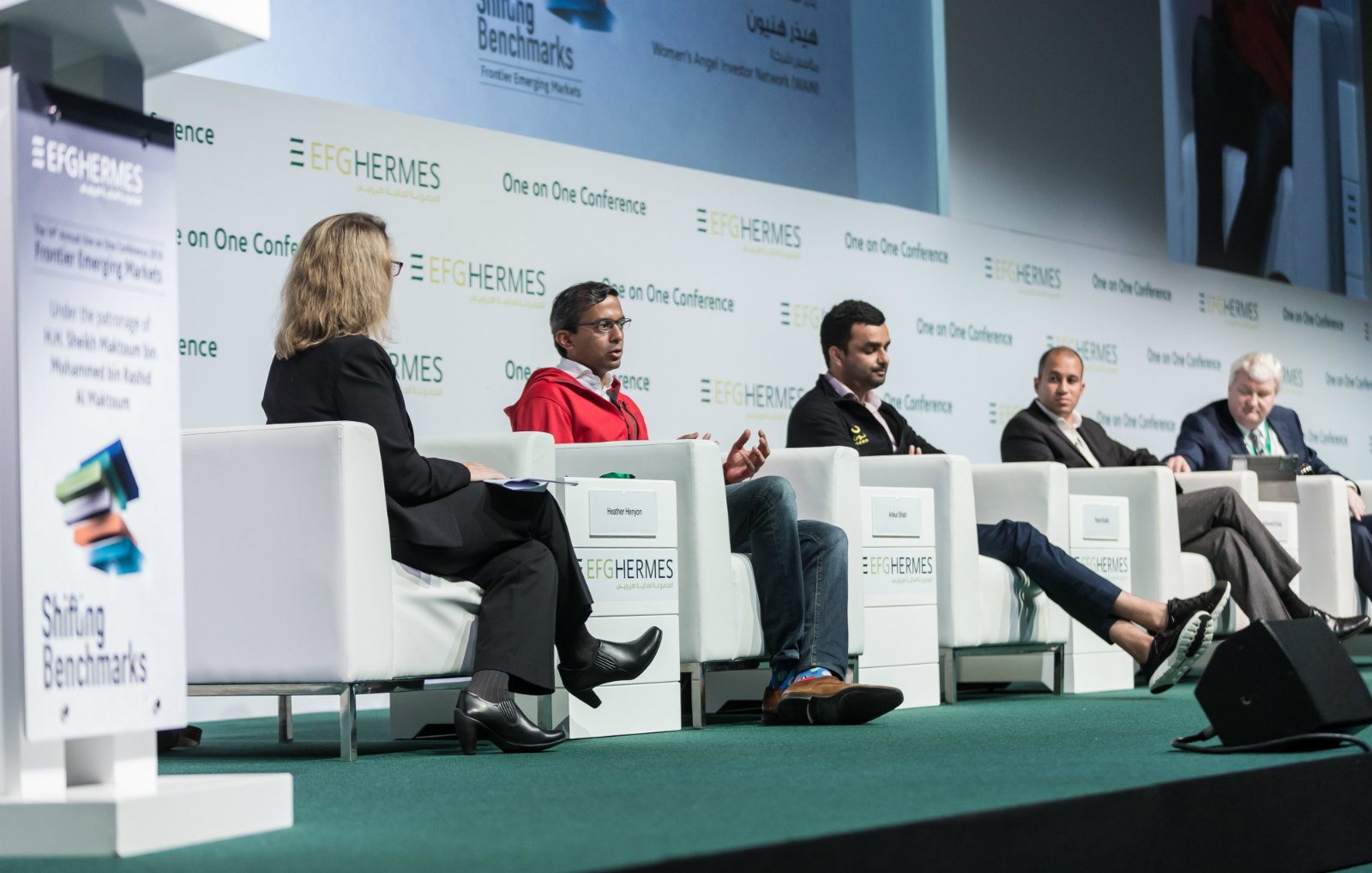Frontier disruption

The final session yesterday morning was headlined Entrepreneurial disruption across frontier and emerging markets and featured a panel discussion between:
- Ankur Shah, chief finance and development officer, Careem (the widely known ridesharing app)
- Faraz Khalid, chief executive officer, Noon (the e-commerce platform in which Emaar’s Mohamed Alabbar invested alongside Saudi’s Public Investment Fund)
- Mohamed El Kalla, founder and CEO, CIRA (Egypt’s largest investor in private education)
- Robert Willett, non_executive director, Mobile World Group (Vietnamese investor in everything from e-commerce to groceries and pharmacies)
- Moderator: Heather Henyon, founder, Women’s Angel Investor Network
The panel was heavy on Silicon Valley rhetoric transplanted to emerging markets, but featured a handful of ridiculously interesting facts.
Key takeaways:
The regional opportunity is staggering, even if it is fragmented. Consider that together, MENA, Iran, Turkey and Pakistan have:
- More than 650 mn people
- 1.5x the GDP of India
- Higher smartphone penetration than China
And yet only 2% of total consumer spending in this region via e-commerce, although 8.5% of the population has a credit card. That 2% figure? It’s better than Vietnam, where Willett says the comparable number is closer to 1%. In developed markets? Look for figures closer to 25-30% on the high end of the scale.
As that 2% moves closer to the 15% average in other markets, we’re looking at USD 400-500 bn annual sales opportunity in e-commerce and consumer internet.
Building an e-commerce platform will be expensive, with costs running as high as USD 60-70 to acquire a customer in the UAE and Saudi Arabia. “You need a 10-year horizon,” says Khalid.
E-commerce in MENA is less about convenience, but about access, says Khalid. It’s about connecting rural Saudi cities, for example, to global brands.
Cash-on-delivery is king in MENA. Consumers have moved from buying on desktops / laptops to mobile websites to via apps, but they still prefer to pay in cash rather than use their credit cards.
The standout performer of the panel was Egypt’s El Kalla, who proved himself articulate, engaging and passionate about his business, the largest private-sector investor in the nation’s education sector. (Yes, we’re Egyptian nationalists for saying this. But he was. Ask the Emirati guys sitting with us, who were captivated by his remarks.)
Careem is processing 1 mn transactions a day across 100 cities in 16 countries spanning from Morocco to Pakistan. Most of its (not)employees are ‘captains’ driving their own personal vehicles, though in some “more highly regulated countries, we worked with licensed [taxi] drivers.”
Mobile World now has more than 1,000 outlets, including 900 big box stores and some 300 stories selling fresh food. It’s now expanding into pharmacies. It has a 40% share of Vietnam’s phone market, 20% of its white goods market and its new food line already has a 5% market share.
Staff come for the mission, the challenge and the work environment — but they stay for the employee stock ownership program. Just about everyone on stage tipped their hat to the importance of ESOPs to keeping talented staff. Mobile World has 5% of shares set aside for an ESOP, while Careem has had a 15% option pool allocated to the ESOP “from the beginning,” Shah says, “to make sure everyone from the CEO to the call center agent is a shareholder…Having gone through one or two secondary sales when we’ve been able to provide liquidity to broader pool of colleagues has given it meaning.” 95% of candidates didn’t negotiation on it before, he says, but they do now.
Buy the companies that would ‘disrupt’ you, El Kalla says, noting that his company’s captive VC activity does that just.
Careem is still in talks with regulators and legislators in Egypt and Pakistan, says Shah — no news there, and no additional detail, either.
Tech types think something will have to change on the regulatory front for there to be technology IPOs in MENA when the time is right.